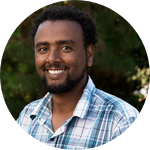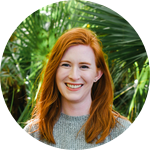About This Project
Inherited and acquired mutations in the mitochondrial DNA can lead to several debilitating diseases, including blindness, neurodegeneration, and sarcopenia. Gene therapy can be a viable strategy to alleviate such diseases. We propose to identify variants of Cytochrome oxidase subunit 2 (COX2) and validate its utility in rescuing function in a model cell line derived from a multi-system disorder and COX2 deficient patient. Think of it as restoring the power plant that produces energy in a cell.
Ask the Scientists
Join The DiscussionWhat is the context of this research?
Initially evolving from ancient bacteria, mitochondria are tiny organelles within our cells that perform the activity of ATP production and other vital functions. Mitochondria are unique among animal organelles for their genome distinct from the nucleus and there are 13 genes essential to oxidative phosphorylation (OxPHOS) that still reside within the human mitochondrial genome. Mitochondrial DNA is highly prone to mutation due to a variety of factors and these mutations result in several pathologies. Our endeavor is in identifying gene therapy approaches to address these mutations. The COX2 gene is a core component of Complex IV in the OxPHOS relay. Mutations in this gene are associated with C IV deficiency affecting a critical step in the oxidation of cytochrome C using molecular oxygen.
What is the significance of this project?
Our lab has successfully produced proteins for all 13 genes found in mitochondria by allotopic expression, but only one (ATP8) has successfully restored function in a disease-model cell line. That natural evolution has already transferred >1000 genes from mitochondrial DNA to the nucleus. Our goal is to find variants of the COX2 gene that can help cells function properly by mimicking the natural evolutionary process. Results from such an experiment would not only be a significant step towards efficacious COX2 gene therapy but would also provide key insights into the genetic changes necessary for successful allotopic expression of all mitochondrial genes. This can also pave the way to treat myopathy, infertility, and coronary artery disease, among others due to COX2 mutations.
What are the goals of the project?
We propose to generate >1 million variants for the COX2 gene using error-prone PCR similar to a study performed in yeasts and test these variants in rescuing oxidative phosphorylation, a function that is crucial for ATP production in cells. The nutrients that we consume are metabolized to CO2 and high-energy electron donors that further combine with oxygen to convert ADP to ATP. We will test this in a human model cell line that is lacking the COX2 protein. This cell line is unable to grow in nutrient medium restrictive for oxidative phosphorylation. Upon placing the variants in such a medium, only cells that are capable of performing OxPHOS can survive. Such a screen would allow us to identify functional variants of the COX2 gene for further analysis.
Budget
The cost of generating COX2 variants at desired scale is $ 11,000.00, as per VectorBuilder. (see Additional Information in the Research section)
We are requesting $8,000.00 from Experiment.com. The outstanding funds will be provided internally. $2000.00 is requested to buy the necessary reagents for cell culture and biochemical assays. We are not requesting any personnel costs, this will be covered internally through a foundation grant. The seed money of $10,000.00 is critical to initiate this project. We have the necessary platform (model cell line, technical expertise, and validated assays) in completing the project. Success in this project can give key insights into allotopic expression of mitochondrial DNA genes in general and further our endeavors in developing gene therapy modalities for mitochondrial DNA mutations.
Endorsed by
 Project Timeline
Project Timeline
Lentivirus variants will be transduced into COX2 null cells to generate stable clones (2mos). Stable cell lines will be tested for OxPHOS and protein expression (2mos). Genomic DNA from viable clones will be back-sequenced to identify functional mutations (1 mo). Variant mutations will be replicated independently to confirm their capacity in supporting OxPHOS function (3mos). Limitations: test screen yielding no viable clones; this would indicate further engineering for the allotopic COX2 gene.
Jul 17, 2023
Project Launched
Aug 01, 2023
Lentiviruses for COX2 variants will be transduced into COX2 null cells to generate stable cell lines.
Nov 01, 2023
Stable cell lines will be screened for allotopic COX2 expression and their ability to grow on OxPHOS-restrictive medium.
Dec 01, 2023
Genomic DNA from viable clones will be extracted and back sequenced to identify useful mutations.
Jan 31, 2024
These mutations will be replicated independently to confirm their capacity in supporting OxPHOS function.
Meet the Team
Team Bio
Ms. Bhavna Dixit M.S. (Senior Research Associate) Ms. Dixit is a senior member in the MitoSENS team and has over 7 years of experience in the field of Mitochondria biology.
Mr. Nathan Schaumburger B. S. (Postbac Fellow) Mr. Schaumburger is a Postbac fellow and an aspiring graduate student with a keen interest in computational biology and evolution.
Dr. Amutha Boominathan
Dr. Amutha Boominathan
I am a Senior Principal Investigator and head of the MitoSENS program at SENS Research Foundation. I completed my graduate studies at the National Chemical Laboratory, Pune, India with a Ph.D. in Biochemistry. Subsequently, through an American Heart Association postdoctoral fellowship, I obtained further training at the University of Pennsylvania and Rutgers University where I studied mitochondrial biogenesis with a focus on protein import and the fusion and fission mechanisms in the organelle. I have over 20 years of experience in mitochondria biology and I am passionate about applying my skills to understand and in finding tangible therapies to address the various diseases as a consequence of mitochondrial dysfunction. I am particularly interested in the role(s) that mitochondria play in aging and age-related diseases.
Bhavna Dixit
I am a Senior Research Associate in the MitoSENS program at SENS Research Foundation. I completed my Masters in Biotechnology at Amity University, India in 2012. I gained my graduate research experience at the National Research Center in Plant Biotechnology, India, where I worked on gene silencing and transcriptional analysis of pathogenicity genes in wheat leaf rust fungus.
Under the guidance of Dr. Boominathan, I obtained an intense introduction to the field of mitochondrial research, that resulted in developing a deep commitment towards a career in finding cure for mitochondrial and age related diseases.
Additional Information
(communication from VectorBuilder.com)
From: service-en=vectorbuilder.com@mail.vectorbuilder.com on behalf of VectorBuilder
Sent: Wednesday, February 8, 2023 5:04 AM
To: Amutha Boominathan
Subject: VectorBuilder design request & other inquiries (D230130-1016ruy)
Hi Amutha,
Please check the answers below.
1. The estimated price for this project is $11,000, which already included a pilot scale lentivirus
packaging you requested.
2. Yes, we will generate this 10^6 scale of library using error-prone PCR.
3. Regarding your question about the vector type, may I ask the further application with this library? in cultured cells or animals? If you just want to amplify the mutations, using a smaller backbone might be better. If future use involves stable cell line generation or similar applications, the lentivirus system is recommended.
We look forward to your feedback.
Best regards,
Project Backers
- 22Backers
- 101%Funded
- $10,167Total Donations
- $462.14Average Donation




